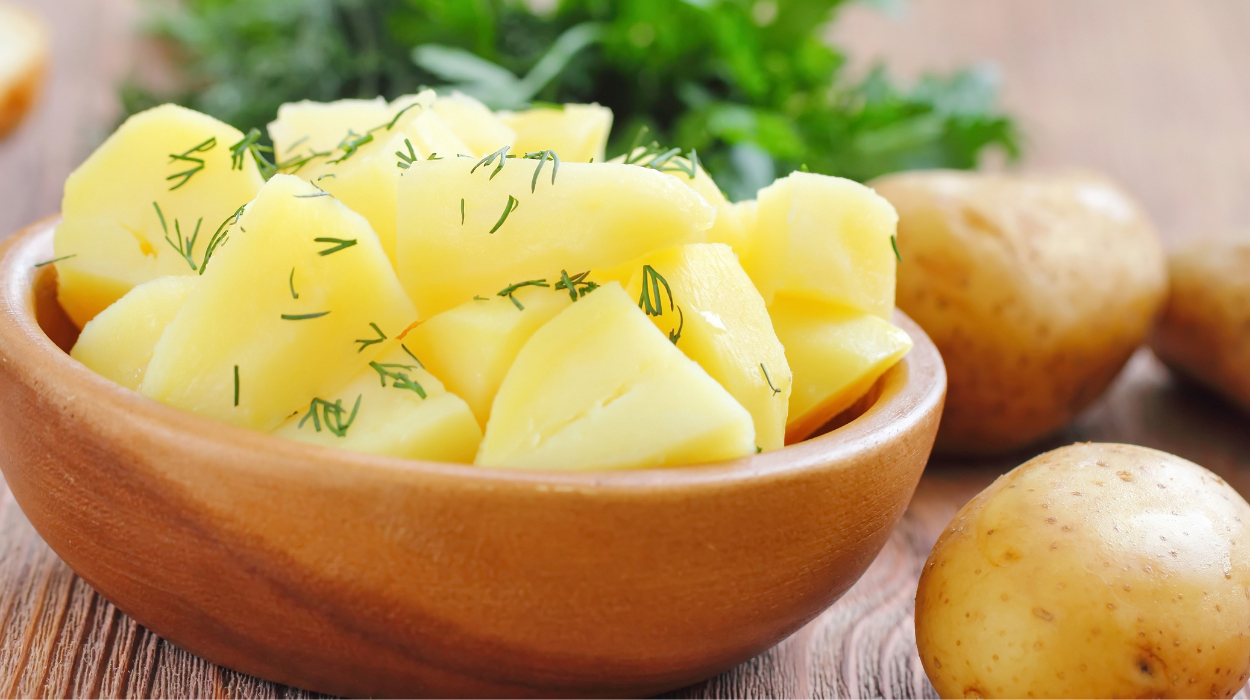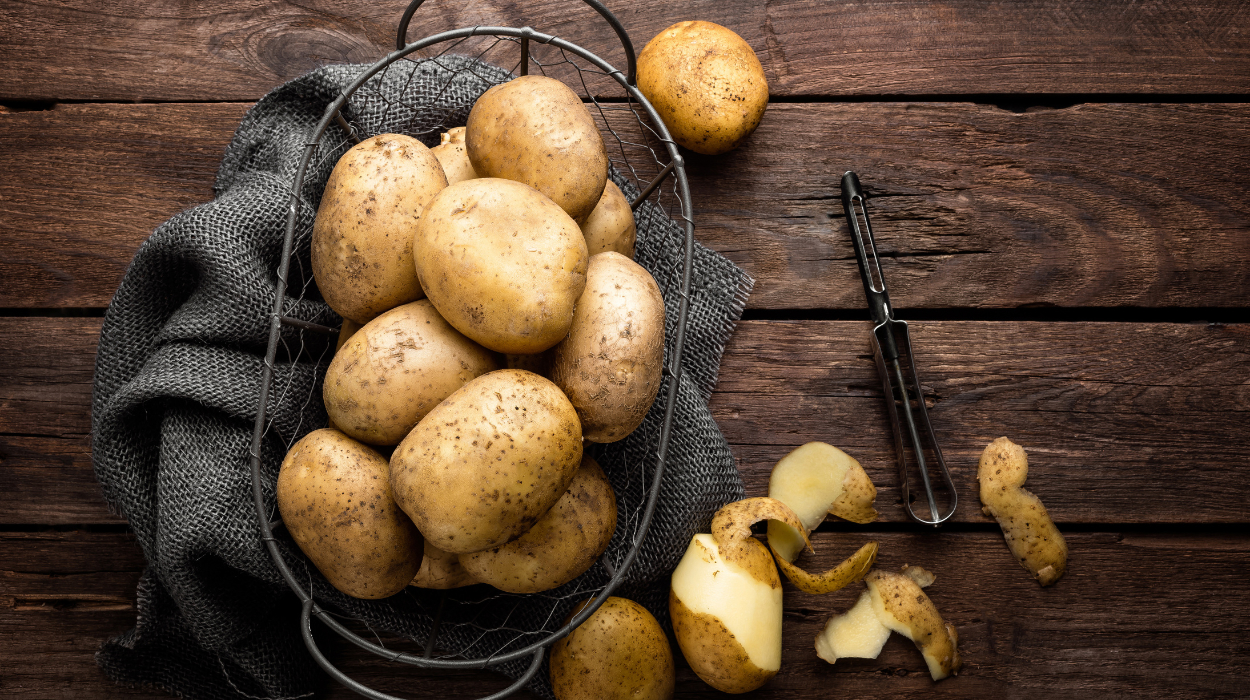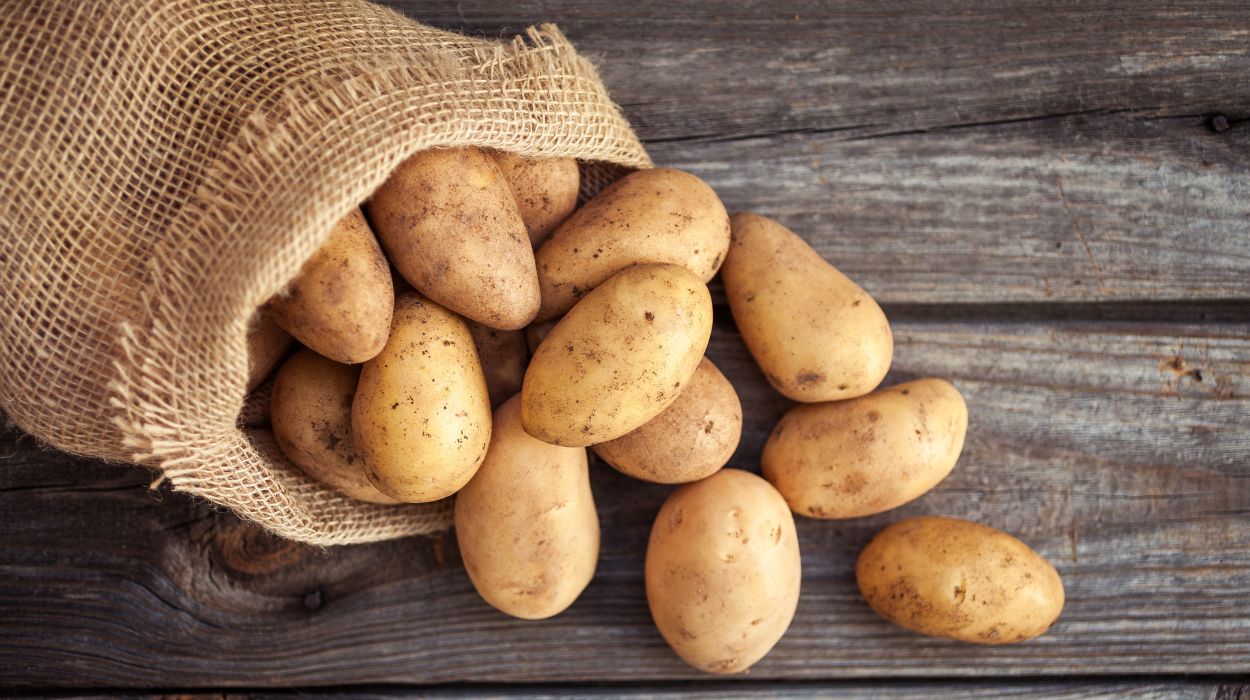With more people focusing on their health, many have sought answers as to what foods to avoid to lose weight. You may also wonder how much carbohydrates you should eat daily, as well as how much fiber per day to lose weight is needed. The good news is that certain foods, such as potatoes, are excellent carbohydrates and fiber sources.
Typically, those trying to lose weight believe that you should avoid starchy, high-carbohydrate foods like potatoes that may contribute to a higher body mass index. While there is some truth to this, potatoes can help with weight loss more than people would expect.
Let’s answer the burning question, “Are potatoes good for weight loss?”
Are Potatoes Good For Losing Weight?
Yes, potatoes can be good for losing weight when consumed in moderation. Potatoes contain numerous nutrients that support the body, and one serving of potatoes is lower in calories than many other foods.
Are Potatoes Good For Weight Loss?

Weight loss may depend on carb intake — the more carbs you consume, the more you gain weight. However, calorie intake is what matters the most when it comes to weight loss. Certain carbs provide the body with many benefits, but unhealthy carbohydrate sources can do much more harm than good.
So, there has been some debate regarding if potatoes are good for weight loss.
It is often believed that due to the high level of carbohydrates in potatoes, they’ll just add more weight if they are included in your diet. Of course, this is true to a certain degree because they contain calories, and extra calories lead to weight gain.
But, potatoes in moderation can be good for weight loss because the vegetable alone is not a high-calorie food.
Potatoes have what is known as complex carbs, which are necessary for maintaining the overall well-being and growth of a healthy gut microbiome. The microbiome is the community of bacteria, viruses, and fungi in your digestive tract.
Fresh, natural potatoes also contain a variety of micronutrients[1] such as potassium, magnesium, and vitamins B6 and C.
When it comes to weight loss, eating cooked potatoes can help you feel full faster, thanks to their high fiber content.[2] Fiber has been shown to help decrease your desire to eat and reduce future food consumption. Thus, high-fiber foods like potatoes can control the amount of food you eat, which can help you lose weight.
When Do Potatoes Hinder Weight Loss?
The problem with potatoes comes when they’re used to make junk food such as French fries and potato chips. This is especially true when they are fried using high-fat vegetable oils.
This frying means that chips and fries have a significantly higher trans fat count than unfried potato dishes, which can lead to undesired weight gain when combined with high amounts of carbs.
The same goes for potatoes cooked with either butter, margarine, or even cream. They may not be fried, but using products high in fatty acids can also increase the amount on a potato.
Even with non-fried cooked potatoes, the amount of calories in a certain dish depends on what you eat the potato with. For instance, if you eat a baked potato topped with melted cheese, bacon, and/or sour cream, the additional ingredients can add to the potato’s total number of calories.
In short, a potato’s nutritional value and effect on weight loss depends on how it is cooked and prepared. By this logic, eating potato dishes[3] such as baked potatoes and mashed potatoes that don’t include margarine or butter can lead to better diet quality. In contrast, fried potato products such as fries and chips can do the exact opposite.
Certain add-ons can also change a potato’s nutritional value, which may either help or hinder your weight loss progress.
The Nutritional Value Of Potatoes

Potatoes have a very high nutritional value.[4] These potatoes can not only support weight loss but can promote overall health as well. Because there are various kinds of potatoes, we will primarily focus on a raw golden potato without skin. Recall, however, that eating the skin on potatoes only adds additional fiber, so try eating with the skin on.
Note that the nutrition facts below are only the average totals in one potato; some may contain slightly more or less than what is listed below.
One hundred grams of a potato contains an average of 16 grams of carbs and 13.8 grams of total dietary fiber. This contributes to an average of 110 calories per potato. Potatoes also contain a total average of 1.81 grams of protein each.
The relatively low to moderate amounts of carbs and calories allow a gold potato to fit perfectly in a healthy diet that promotes weight loss. This is especially true when combined with other vegetables or keto supplements.
The presence of protein,[5] albeit a relatively small amount, supports weight loss even further as protein can help burn excess body fat by boosting metabolism.
Vitamins And Minerals
As mentioned before, potatoes are also often considered high in minerals that can improve overall health. Some of these minerals[4] include the following:
- 577 milligrams of phosphorus.
- 446 milligrams of potassium.
- 22.3 milligrams of magnesium.
- 0.37 milligrams of iron.
- 6 milligrams of calcium.
- 2 milligrams of sodium.
- 0.37 milligrams of zinc.
The high amounts of potassium and phosphorus are significant to note here as foods rich in these may help with weight loss. Phosphorus acts the same way as fiber by creating a feeling of fullness,[6] which can reduce the chances of overeating.
Meanwhile, potassium acts similarly to protein by boosting metabolism[7] alongside other cardiovascular benefits.
Potatoes contain fewer vitamins than the minerals listed above, but they are still important nonetheless. Potatoes have three distinct types of vitamin B in small amounts: 0.051 milligrams of vitamin B1, 1.5 milligrams of vitamin B3, and 0.145 milligrams of vitamin B6. Some other vitamins you could potentially find in a potato include 23.3 milligrams of vitamin C and 0.8 micrograms of vitamin K.
The presence of vitamin B can still further contribute to weight loss. This is because they act the same way as proteins and potassium, boosting metabolism to accelerate the rate at which your body burns away fat. But the amount is so small that it becomes overshadowed by some of the other minerals and components in larger amounts.
Overall, potatoes are very nutritious as long as they are not deep-fried in a way that causes their nutrients to degrade and increase their fat content.
How Many Potatoes Should I Eat A Day To Lose Weight?
Eating one whole medium-sized potato or an equivalent amount of diced or mashed potatoes per day is ideal for losing weight. For those wondering, “Is boiled potato good for weight loss?” one plain boiled potato alone is highly satiating, maybe even more so than french fries.
Again, this is because of the high fiber content of a potato.
However, like with all foods, you should learn how to eat potatoes in moderation. While their high carb content may not hurt your progress if you only eat about one a day, including too many potatoes in your daily diet may bring you over your daily carb limit. It is important to get various nutrients from many different foods daily.
In recent years, some people have asked about the potato diet, in which you are restricted to only eating potatoes. This diet helps create a calorie deficit to lose weight.
Not only has this been discovered to be just a fad diet. Even if it were true, just eating potatoes and nothing else could still lead to excessive calorie intake and would result in vitamin and mineral deficiencies.
Of course, eating potatoes alone will not be enough to lose weight. It is important to do cardio to lose weight as well. Running a few miles per day to lose weight is a good start to doing this.
Conclusion
With all this in mind, are potatoes good for a diet? Yes. Potatoes can be great for someone who is trying to lose weight.
Contrary to popular belief and the rules of the keto diet, potatoes are not as harmful to weight loss as many people make them out to be. In fact, when prepared properly, a potato can actually contribute to weight loss by decreasing appetite and increasing fullness.
Frequently Asked Questions
Yes, but only to some extent. They can amplify the weight loss effects of proper diet and exercise, but they shouldn’t be considered the only food that can do this.
Yes, they have a higher nutritional value and a greater effect on cardiometabolic risk factors[8] when compared to rice.
Purple, red, and sweet potatoes appear to be the best potatoes contributing to weight loss.
One medium-sized potato per day every day is encouraged. Moderation is important, as trying to eat many potato products in one day will likely lead to unwanted weight gain.
 Evidence Based
Evidence Based
